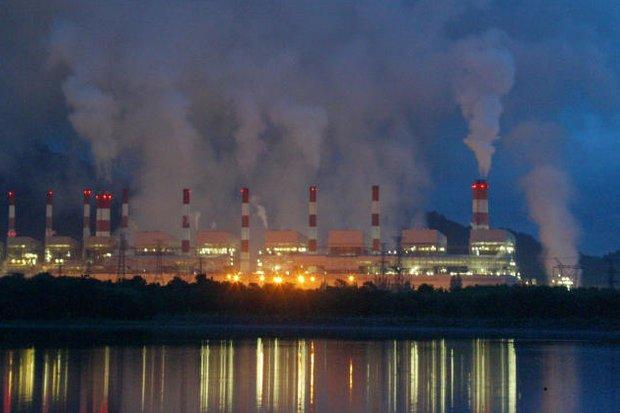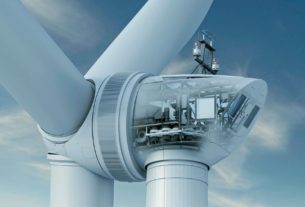
The “dirty coal” power plant powered by lignite at Mae Moh, Lampang province, has helped to fuel a major debate over how to supply energy for Thailand’s future. (Bangkok Post file photo courtesy of Greenpeace)
Thailand must build more coal-fired and new nuclear power plants to meet its energy needs and strengthen energy security as future supplies of natural gas are uncertain, engineers said yesterday.
Academics from Chulalongkorn University’s Faculty of Engineering made the comments at a press briefing Tuesday.
Prime Minister Prayut Chan-o-cha late last month ordered the halt of a planned coal-fired power plant and seaport in southern Krabi province after protests against the projects. He appointed a panel comprising representatives from the government, National Reform Council, National Legislative Assembly and public sector to discuss alternative solutions, including renewable energy options.
Pinyo Meechumna, from Chulalongkorn’s Department of Mining and Petroleum Engineering, said the country’s energy security was at risk as its power plants rely too heavily on natural gas. Of the country’s natural gas consumption, 70% is domestically produced while the rest is purchased from neighbouring countries.
He said if this situation continued, natural gas supplies from the Gulf of Thailand would be depleted within the next eight years. The country must reduce its heavy reliance on natural gas consumption for its own sake, he said.
Mr Pinyo said if the country wanted to increase power consumption at a reasonable price, it should build more coal-fired or new nuclear power plants. Otherwise, Thailand risked frequent power outages, which would affect both its economy and credibility.
He said Thailand had learned its lessons from power outages in the South last year, caused by a technical problem at a natural gas power plant in Ratchaburi province. The outage caused several billion baht of damages for the frozen seafood business, he said.
“We are a developing country so we can’t use as much renewable energy as developed countries,” Mr Pinyo said.
“We have limitations. And under our limitations, we can use the best technology for coal-fired power to limit its impact on the environment,” he said, adding that coal-fired power should provide the bulk of the country’s power, with renewable energy supplementing it.
He proposed solutions to reduce tensions over protests against the Krabi coal-fired power plant project, including compensation and financial help, such as subsidised electricity and tax exemptions, for locals living near the plant.
Sirima Panyametheekul, from Chulalongkorn’s Department of Environmental Engineering, said sophisticated technology could deal with the pollutant by-products of coal-fired power plants, namely toxic gases and heavy metals. However, investors must be prepared for the high costs of this technology, she said.
Sutha Khaodhiar, the director of Chulalongkorn’s Centre of Excellence on Hazardous Substance Management, said burning high quality coal would produce only 5% of the ash compared to low quality coal. He said as the technology of coal plants advances, they would use less and less coal, meaning fewer pollutants would be produced.
Source: http://bangkokpost.com/news/general/652472/experts-urge-coal-nuclear-energy-future



